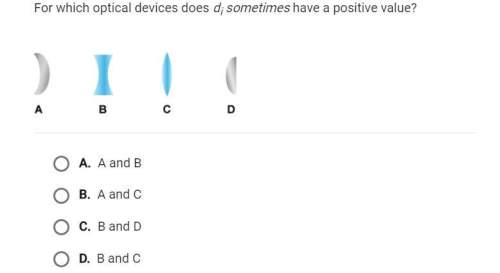
Physics, 16.04.2020 03:15 michellemonchez103
We want to get a better, more concrete idea of the strength of the electric force. So imagine you could remove all the electrons from 1 mL (1 cubic centimeter) of water. Dump the electrons on yourself, and put the electron-free nuclei (protons and neutrons) on the moon. Estimate how much force will there be between the positive and negative charges? (Of course you have to look up the earth-moon distance.) What fraction of your weight is that force? How many electrons do you have in 1 cc? Consider that virtually all the mass is given by protons and neutrons. Since the proton and the neutron have almost equal masses, and most atoms have equal numbers of protons and neutrons, so the water mass, divided by 2, is the mass of protons. Once you know the total mass of protons, divide by the mass of a single proton and you have the total number of protons. Knowing that, how many electrons do you then suppose you have?)

Answers: 3


Other questions on the subject: Physics

Physics, 21.06.2019 20:20, hayesvolcano
How much work would a child do while puling a 12-kg wagon a distance of 3m with a 22 n force directed 30 degrees with respect to the horizontal? (a) 82j (b) 52j (c) 109j (d) 95j
Answers: 2


Physics, 22.06.2019 08:00, jpsaad00
Tafari worked one summer on a ship that set weather buoys in the ocean. he watched how one of the buoys moved in the water. describe which parts of the wave would cause the buoy to bob up and down. which wave property determined how fast the buoys bobbed in the water? he observed that when the wind blew harder, the ocean waves were larger, and the buoys moved away from the ship. what effect, if any, did the waves have on how far the buoys moved? explain your answer.
Answers: 3

Physics, 22.06.2019 09:30, officialariana01
In a heat engine if 1000 j of heat enters the system the piston does 500 j of work, what is the final internal energy of the system if the initial energy was 2000 j? 1. write the equation 2.list out your known variables 3.plug the numbers into the equations 4.solve 5.write your solution statement that includes initial energy and final
Answers: 3
You know the right answer?
We want to get a better, more concrete idea of the strength of the electric force. So imagine you co...
Questions in other subjects:

Social Studies, 01.08.2019 16:00

Social Studies, 01.08.2019 16:00

Social Studies, 01.08.2019 16:00

Social Studies, 01.08.2019 16:00

Biology, 01.08.2019 16:00

Social Studies, 01.08.2019 16:00


History, 01.08.2019 16:00

History, 01.08.2019 16:00

Mathematics, 01.08.2019 16:00






